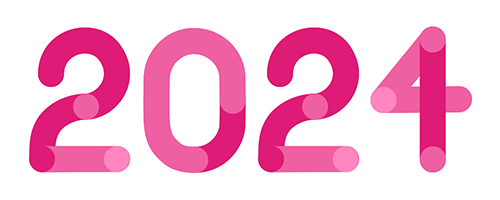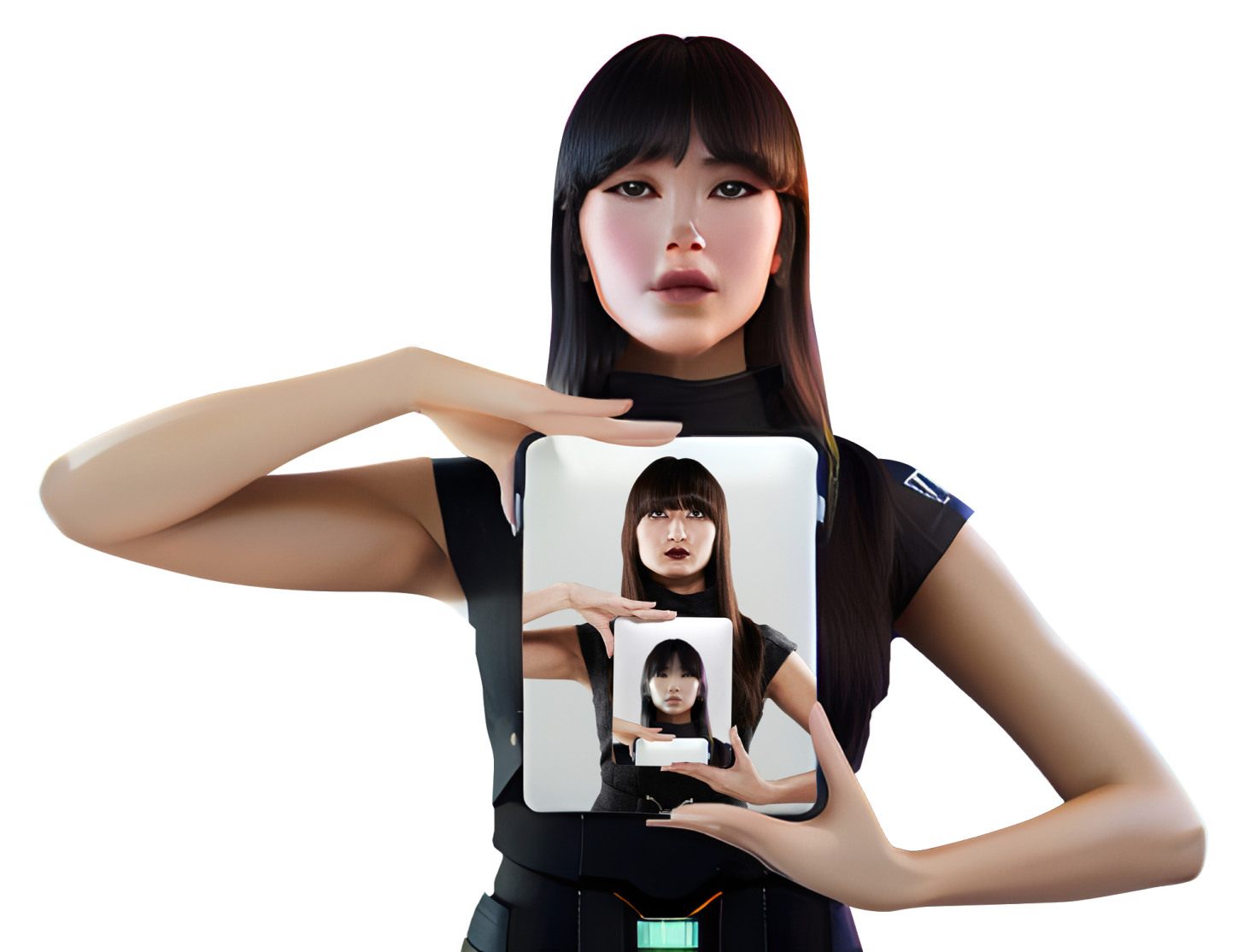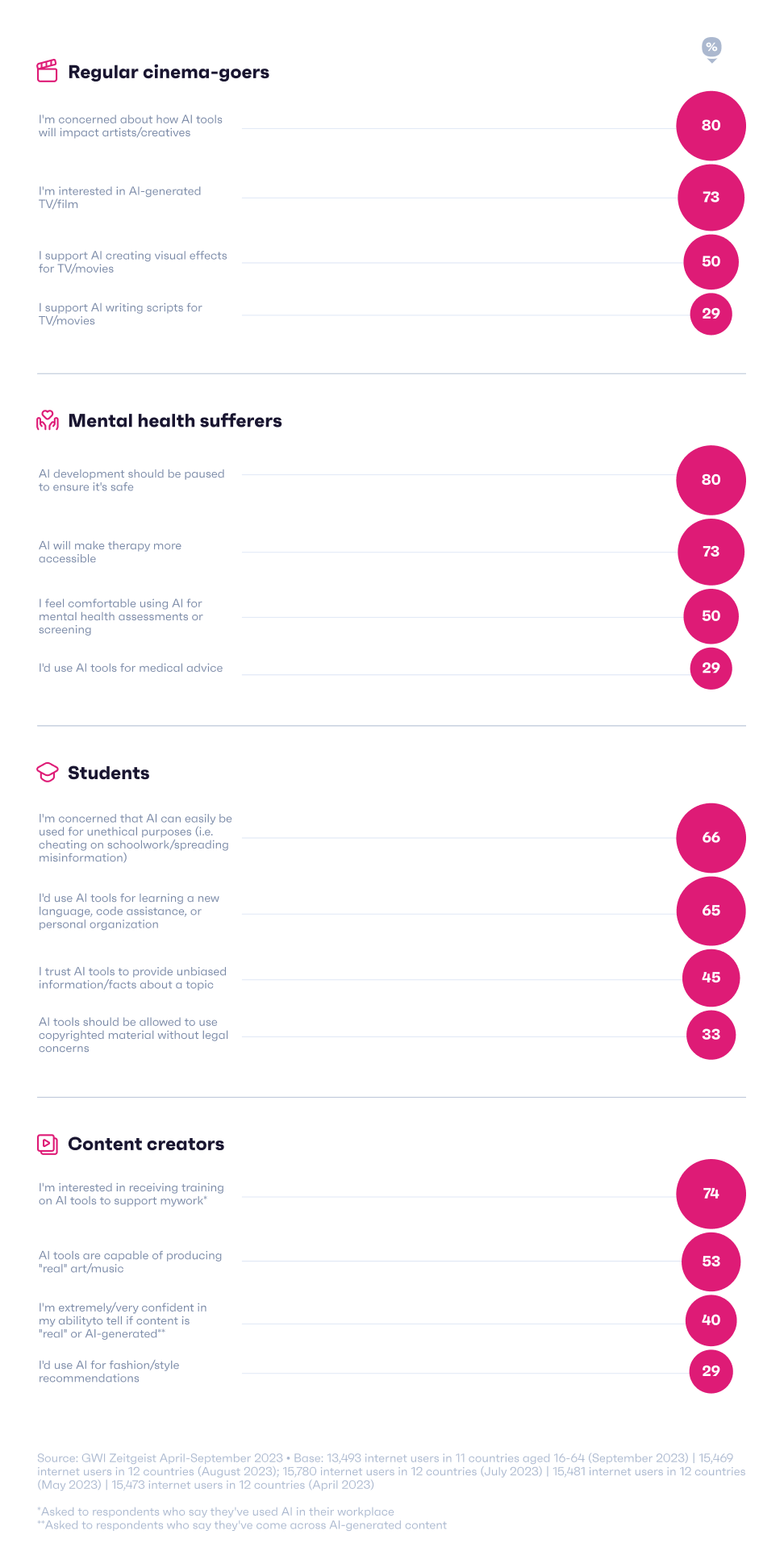Download chart
What’s happening and why?
A good way to illustrate this is with some examples. Cinema-goers are interested in AI-generated movies, but more are concerned about AI’s potential impact on creatives. This means film companies should aim to use the technology as a supplement, and ensure their material maintains “the human touch”.
People with a mental health condition are optimistic about what AI can do for therapy, but don’t see it as a replacement for traditional treatment. Healthcare providers may benefit from using these tools for initial screenings and support until they're tried and tested.
Similar dynamics will play out across many sectors, with excitement about benefits balanced by worries around unwelcome or unforeseen changes. Audiences will ultimately judge brands on how they use AI, so they’ll need to weave it into their processes slowly and be transparent.



























